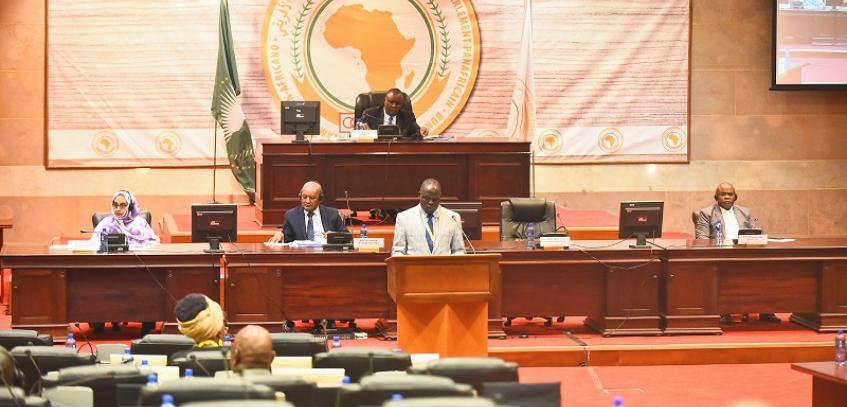Realising Africa's challenges towards universal access to internet and cyber security vulnerabilities, the Pan-African Parliament (PAP) Plenary has undertaken to develop a Model for use by African Union (AU) Member States when enacting their own domestic legislation.
This comes as the PAP Plenary received, debated and adopted a report of the Permanent Committee on Transport, Industry, Communications, Energy, Science and Technology on access to information and digital rights. The Sixth PAP’s Second Ordinary Session is currently underway and being held under the African Union Theme of the Year for 2023, “The Year of AfCFTA: Accelerating the Implementation of the African Continental Free Trade Area” in Midrand, South Africa kicked off on May 15 and will run up to 1 June 2023.
Speaking on behalf of the Committee’s Chairperson, Hon. Behdja Lammali, the Rapporteur, Hon. Ashinie Astin Titoyik highlighted various issues with regards to the Internet Governance Forum Parliamentary track that brings together Parliamentarians in discussing internet governance. "We recommend that we organize a workshop to review the Malabo Convention so as to identify gaps which need to be addressed in that Convention. This will include presentations on the ongoing development of a Model Cyber Security Law," said Hon. Ashinie Astin Titoyik.
The Model Law will primarily be informed by contemporary developments in regional and international human rights and cyber security law.
During the debate on the report, Hon. Sen Danson Mungatana (Kenya) said: “While we commend the Committee for the comprehensive report, we would like to remind them that the world is no longer discussing much on the impact of access to internet but talking about Artificial Intelligence. Other countries are now advanced and discussing how the world will behave in the near future so we should also move to discuss those issues.” The PAP Plenary agreed to proposals to interrogate issues relating to Artificial Intelligence and how it will impact lives of the ordinary African population.








